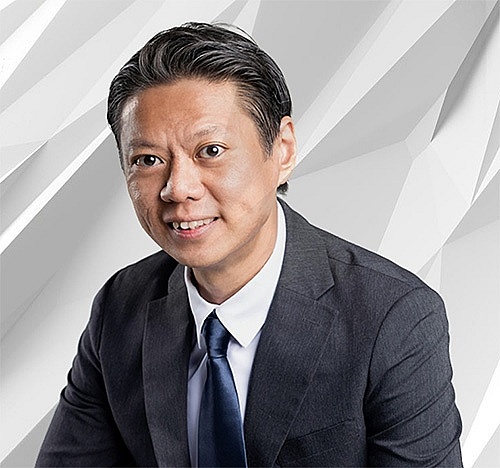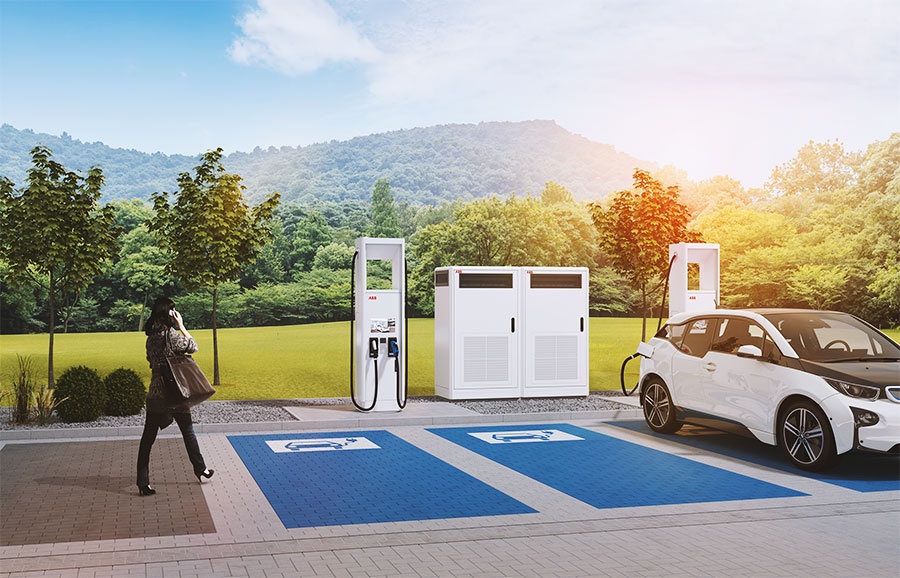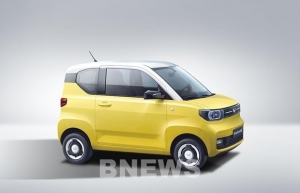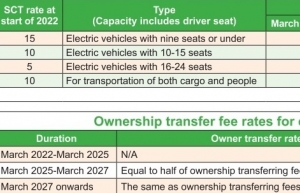ABB to lead charge in Vietnam's EV market
How do you view the immediate future of the EV market in Vietnam?
 |
| Wee Jin Lee, Asia-Pacific regional leader of ABB E-mobility |
Vietnam will be one of the countries that ABB E-mobility will support in growing its electric vehicle charging infrastructure. We will focus on how to support the e-mobility market in Vietnam through ABB E-mobility initiatives, such as offering digital solutions for charging infrastructure to ensure consumers have a seamless charging experience. We will also work with local authorities to support the setup of charging standards.
With a Net Zero target already set for 2050, public and private sectors in the mobility space are working together to achieve this goal. Local authorities are coming up with regulations to establish a safe charging experience for consumers. We are positive and optimistic.
What has ABB been implementing to facilitate EV adoption in Vietnam?
One of ABB E-mobility’s priorities is to create a knowledge-based community in the e-mobility space. We have set up an APAC Training Center in Singapore, whereby we send engineers and our channel partners from across the region to Singapore for training.
At ABB E-mobility, we also look at how we can drive the key benefits of industry-wide open standards and interoperability topics to support market health and consumer satisfaction in Vietnam.
The initiatives include safety, the bringing together stakeholders and experts across engineering disciplines to ensure ever-present safety standards and practices, and removing the risk of vulnerabilities.
Scalability is also one of the key factors. Investing in common infrastructure will reduce overall cost and enable vehicles to adopt the highest equipment use. Interoperable back-end solutions will deliver choice and access to all current and potential technologies, eliminating vendor/tech lock in and charging asset stranding over time.
Next, we look at cost-saving opportunities from a charging infrastructure perspective. With known charging system hardware and communication variables, research and development costs will be lower across the entire industry. Price and availability pressure points in the supply chain will decrease due to lower cost through volume and market competition.
Finally, security is just as important. Communications and software standards will rigorously and uniformly incorporate stability and security. This will lower the risks of downtime, unauthorised access, and malware. In turn, it will reduce operational threats and secure sensitive consumer and company data.
 |
What can we do to make charging EVs safer, more cost-effective and environmentally friendly?
EV charging is already a very safe process, but ensuring other factors which contribute to charging efficiency and adoption, such as hardware reliability and high uptime, will also have a positive impact on safety.
There are multiple stakeholders involved when we talk about these aspects of EV charging. The first are the car owners themselves. Are they aware of the general etiquette when performing a charging session? The users will have their responsibility in terms of safety. From a charging perspective, it can be done right with the safety standards as defined by IEC Standards. We can bring together different stakeholders and experts across the engineering disciplines to ensure safety standards and practices are maintained, removing any vulnerabilities in the region.
Now, different countries will have different safety standards. For example, in Singapore, the chargers must be serviced twice a year to ensure no safety issues are present and chargers are kept to a high uptime. From a Vietnamese perspective, we can also reduce the frequency of servicing depending on the utility rate. We must study charger usage patterns by monitoring the charger logs and, with data collection overtime, will be able to support better decision-making. For example, to determine whether there’s a need for more maintenance or are we over-maintaining, which would lead to cost increase.
 |
A significant challenge in the development of EV charging station infrastructure is the lack of universal compatibility in the industry. How does ABB propose to deal with this issue?
Addressing the charging standards to be implemented in Vietnam is important, as we need to ensure that the Vietnamese market is aligned to the charging standards adopted internationally. At ABB E-mobility, we have been at the forefront of driving interoperability on a global level for over a decade. We were involved in the founding of both the CHAdeMO and CCS alliance charging standards for passenger vehicles and are currently working as a member of the European Union-funded ASSURED project, facilitating greater standardisation for the charging of electric buses.
Open standards and interoperability are critical to encourage adoption and growth across the spectrum of charging systems, from engineers and vehicle makers through to utilities and regulators.
How do you foresee the adoption of EVs in Vietnam?
I think it will be challenging, but I see positive signs that EVs will form a significant percentage of transport in Vietnam before 2050.
There are a few critical considerations to note, for instance, will there be sufficient standards to govern EVs in Vietnam? There is an important balance to be found by authorities, who must develop strong regulations without making the standards too elaborate, which can hinder the growth of EVs.
Government programmes that support funding for public charging stations and electric vehicle purchases are also crucial considerations. Both charging infrastructure and EVs come hand in hand. We cannot have one without the other. Having adequate charging infrastructure in Vietnam without an uptake in EV adoption will result in under utilisation of the public charging infrastructure. On the flip side, a high uptake in EV adoption without sufficient charging infrastructure would also pose an issue for EV owners.
Finally, many EV owners are also installing AC Chargers in their homes. Take Indonesia, for example, where the state-owned electricity company is rolling out a subsidy programme that provides discounts on electric bills during off-peak hours from 10pm-5am.
With all these government initiatives in place and public awareness of the e-mobility space, I see good things coming for Vietnam on its EV adoption journey.
 | TMT Motors partners with world leading joint venture to bring mini EVs to Vietnam TMT Automobile Joint Stock Company (TMT Motors) on February 18 announced that it has signed a strategic cooperation agreement with the joint venture of General Motors (GM) and SAIC - WULING on the manufacturing, assembling and exclusively distributing of electric vehicles of GM and SAIC - WULING in Vietnam. |
 | How electric vehicles can shape the auto industry In order to implement Vietnam’s net-zero commitments, one of the solutions by the government is to use more electric vehicles (EVs) as a means of transportation for the step-by-step replacement of motor vehicles powered by conventional internal combustion engines. |
What the stars mean:
★ Poor ★ ★ Promising ★★★ Good ★★★★ Very good ★★★★★ Exceptional
Related Contents
Latest News
More News
- Digital shift reshaping Vietnam’s real estate brokerages (December 31, 2025 | 18:54)
- Allen & Gledhill recognised as Outstanding M&A Advisory Firm (December 18, 2025 | 14:19)
- Inside Lego Manufacturing Vietnam (December 18, 2025 | 11:45)
- The next leap in Cloud AI (December 11, 2025 | 18:19)
- Vietnam’s telecom industry: the next stage of growth (December 11, 2025 | 18:18)
- Five tech predictions for 2026 and beyond: new era of AI (December 11, 2025 | 18:16)
- CONINCO announces new chairman and CEO (December 10, 2025 | 11:00)
- How AWS is powering the next-gen data era (December 09, 2025 | 13:14)
- Outlook in M&A solid for Singapore (December 08, 2025 | 10:31)
- Vietnamese firms are resetting their strategy for global markets (December 05, 2025 | 17:04)

 Tag:
Tag:




















 Mobile Version
Mobile Version